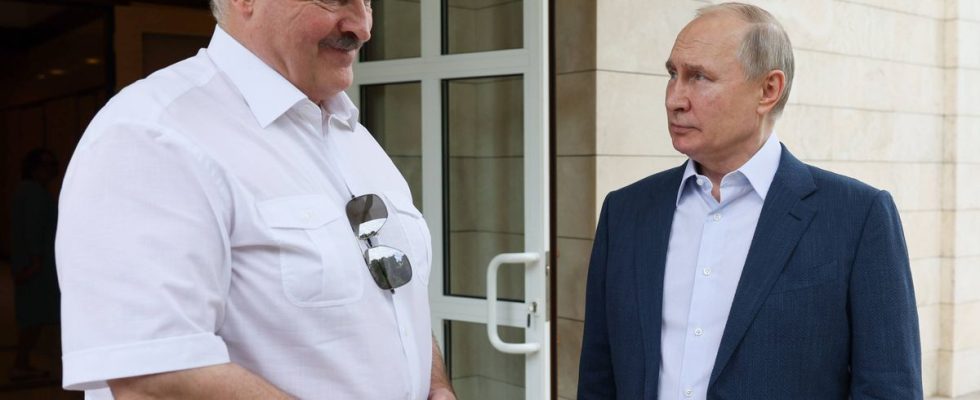It is a prestigious victory which could ultimately prove difficult to manage for Alexander Lukashenko. The architect of the end of the Wagner mutiny, the president of Belarus, Vladimir Putin’s main ally, could indeed regret the consequences of seeing the cumbersome leader of the Russian paramilitary group arrive at his home.
In a surprise statement on Saturday evening, Lukashenko’s press office said he spent the day negotiating with Yevgeny Prigojine, with the Russian president’s approval, finally getting Wagner’s boss to halt his advance on Moscow. The agreement represents a coup for the Belarusian president, who has ruled his country with an iron fist for almost 30 years and has been a pariah in the West since the highly contested elections of 2020 and after his support for the invasion of Ukraine by Russia.
Putin’s thanks
At the end of the negotiated agreement, Prigojine must live in exile in Belarus, announced the Kremlin, without specifying whether he would bring with him members of his militia. The phone call where, according to the Belarusian presidency, Putin thanked Lukashenko, must have sounded like sweet music to the ears of the strong man from Minsk.
But for Katia Glod, of the European Leadership Network in London, he especially inherited a hot potato. “I don’t think that’s Lukashenko’s will. I think it was used by the Kremlin,” she said. Its presence in Belarus will pose “multiple risks”, she adds, in a country where the loyalty of the security forces is of paramount importance. “The only advantage that the Belarusian leader could derive would be to use Prigozhin’s men as a personal army against a possible revolt”.
Since 2020, Lukashenko has become increasingly dependent on the Kremlin for his political survival, appearing as Putin’s vassal. And in what the opposition sees as a major blow to the country’s sovereignty, it now harbors Russian tactical nuclear weapons. This “means the slow-motion annexation of Belarus by Russia,” notes William Alberque, of the International Institute for Strategic Studies (IISS).
For the Belarusian opposition, whose leader Svetlana Tikhanovskaïa went into exile the day after elections which she says she won, Lukashenko’s dependence on Russia makes her decision dangerous. “Prigozhin is not a gift for Lukashenko because Putin, the autocrat, will never forgive the humiliation he has suffered,” says former Belarusian Culture Minister Pavel Latushko, now in opposition. “It’s a small tactical, artificial and superficial victory for Lukashenko which could turn into a strategic problem”, he added on the Polish opposition channel Telegram Nexta.
Violence and support from Russia
Internal repression has intensified, with some 1,500 political prisoners, according to human rights group Viasna. According to Katia Glod, Lukashenko’s reign rests on two pillars: violence and support from Russia. But “he is clearly worried now, because the Kremlin is not as strong as it seemed to be”.
Hanna Liubakova, of the Atlantic Council, notes for her part that Lukashenko’s position could be strengthened by his mediation. But “in the longer term, his regime will suffer the repercussions”. Because if he showed an “unshakeable loyalty” to the Kremlin, he made a “risky bet” on the rapid victory of Russia in Ukraine. “As Putin’s authority weakens, the Minsk regime may find itself with reduced backing and backing from Russia.”

